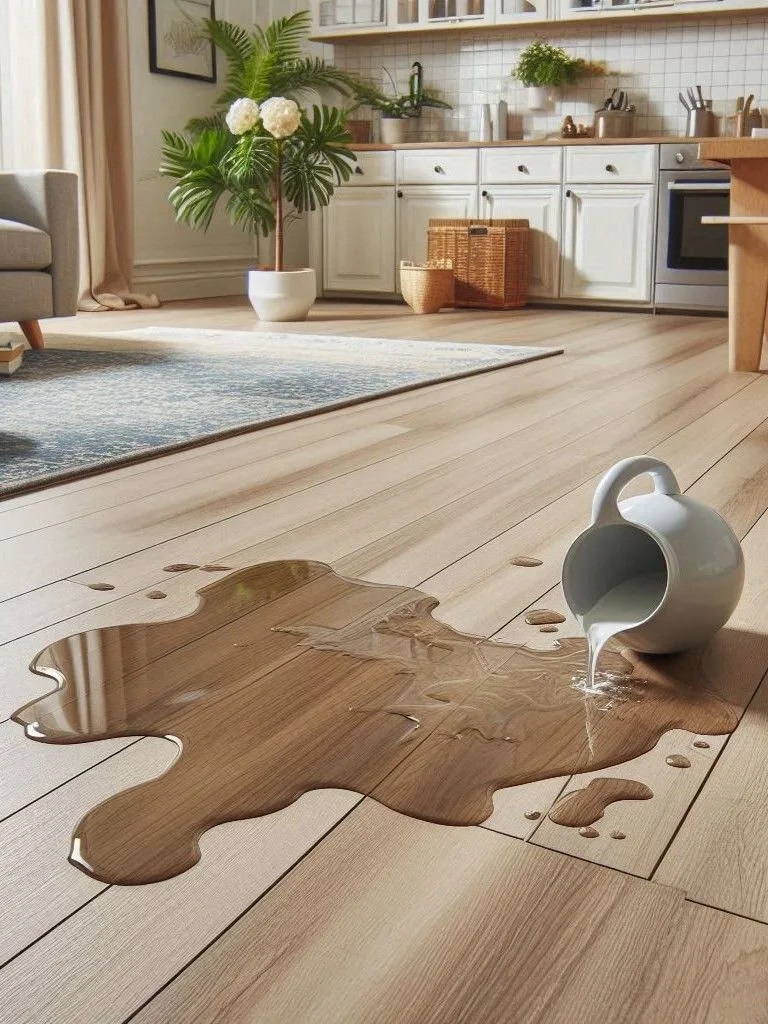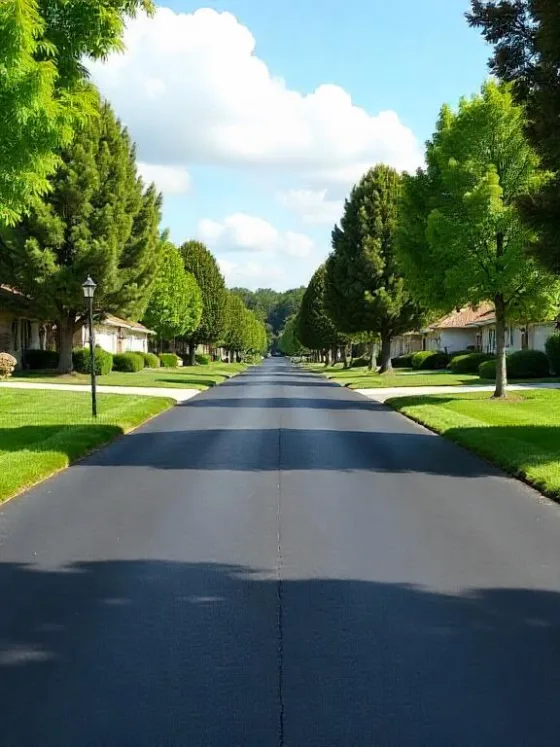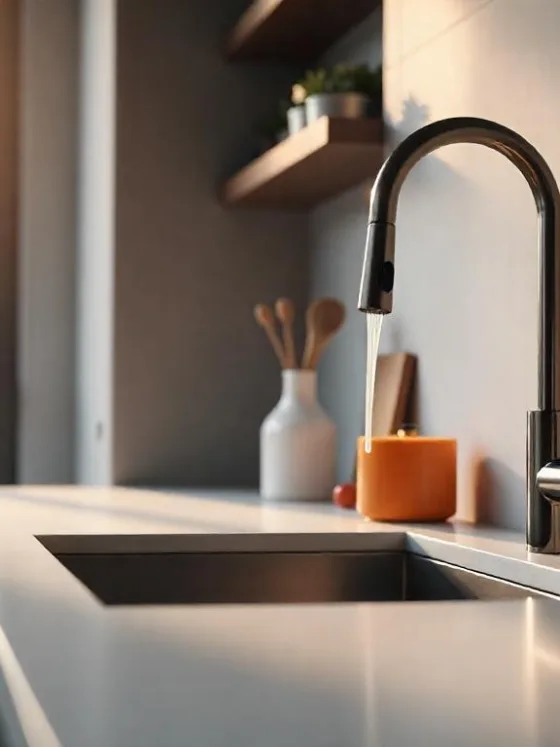Table of Contents Show
Introduction
Vinyl plank flooring is a versatile and durable flooring option that mimics the look of hardwood. It’s water-resistant, easy to maintain, and lasts a long time, making it a popular choice for homeowners.
In this article, we will discuss in detail the various factors that can impact the vinyl plank flooring installation cost, as well as provide average price ranges to give you a better understanding of the expenses involved.
Considering these cost factors carefully will help you make informed decisions and budget effectively for your vinyl plank flooring project.
1. Understanding Vinyl Plank Flooring
Vinyl plank flooring is a type of synthetic floor covering designed to mimic the look and feel of natural materials like hardwood or stone. It is made from multiple layers, including a durable wear layer, a printed design layer, and a resilient backing layer. This composition contributes to its longevity and robustness.
Key Features of Vinyl Plank Flooring
Here are the main reasons why vinyl plank flooring has become so popular:
- Durability: The wear layer protects against scratches, dents, and stains, making it suitable for high-traffic areas.
- Water Resistance: Ideal for kitchens, bathrooms, and basements due to its moisture resistance.
- Ease of Maintenance: Simple to clean with regular sweeping and occasional mopping.
- Aesthetic Appeal: Available in various designs, colors, and textures that closely resemble natural materials.
- Comfort: Softer underfoot compared to traditional hardwood or tile flooring.
These features make vinyl plank flooring an attractive option for homeowners seeking both beauty and practicality.
2. Average Cost Range of Vinyl Plank Flooring
The cost range for vinyl plank flooring materials varies significantly based on quality and brand. For entry-level options, prices typically start at around $2 per square foot. These budget-friendly choices are ideal for those looking to achieve the look of hardwood or tile without breaking the bank.
For those seeking premium choices, the price can escalate up to $10 per square foot. Premium vinyl planks often feature enhanced durability, thicker wear layers, and superior aesthetic details that mimic natural wood or stone more convincingly.
Here’s a breakdown of the average cost range for different types of vinyl plank flooring:
- Entry-Level Options: Around $2 to $4 per square foot.
- Mid-Range Options: Around $4 to $6 per square foot.
- Premium Options: Around $7 to $10 per square foot.
When choosing vinyl plank flooring, it’s important to find a balance between cost and quality. Make sure the option you select fits both your budget and your expectations in terms of durability and appearance.
3. Factors Affecting Vinyl Plank Flooring Installation Cost
Several factors can significantly influence the cost of vinyl plank flooring installation:
Material Quality
Higher-quality vinyl planks, like luxury vinyl plank (LVP) flooring, tend to be more expensive but offer enhanced durability and aesthetic appeal. Thickness and wear layer also impact the cost; thicker planks with a robust wear layer generally cost more due to their superior performance.
Room Size
Larger rooms require more materials and labor, increasing the overall cost. Small rooms or areas with intricate layouts may also incur additional expenses due to the complexity of installation.
Labor Expenses
Professional installation costs vary by region and expertise level. Labor charges can range from $1 to $6 per square foot or $30 to $50 per hour. Highly skilled installers may charge premium rates, reflecting their experience and quality of work.
Other elements like underlayment type, subfloor condition, and removal of existing flooring also contribute to the final expense, making it crucial to consider all these factors when budgeting for your project.
4. Breakdown of Vinyl Plank Flooring Installation Costs
Understanding the breakdown of installation costs helps in budgeting effectively. Here are the key components:
Materials
- Vinyl Planks: Prices range from $2 to $10 per square foot, depending on the quality and type (standard or luxury) of the planks.
- Underlayment: This can include options like plywood, felt, foam, cork, or rubber. Costs vary based on moisture resistance and sound absorption capabilities.
Labor
- Professional Installation: Typically costs between $1 to $6 per square foot or $30 to $50 per hour.
- DIY Installation: While labor costs are zero, consider the time investment and potential for errors.
Additional Expenses
- Adhesive: Necessary for securing the planks, if not using click-lock systems.
- Subfloor Preparation: Costs for leveling or repairing the subfloor before installation.
- Miscellaneous Fees: Disposal fees for old flooring materials and furniture moving charges.
Being aware of these components ensures a transparent understanding of your vinyl plank flooring project’s total cost.
Professional Installation vs. DIY: Which is More Cost-Effective?
Choosing between professional installation and a DIY approach for vinyl plank flooring involves weighing the pros and cons of each option.
Professional Installation
Pros:
- Expertise: Professionals bring specialized skills to ensure a high-quality finish.
- Efficiency: Faster completion times due to experience and tools.
- Warranty: Many contractors offer warranties on their work, adding peace of mind.
Cons:
- Cost: Professional services can range from $1 to $6 per square foot or $30 to $50 per hour, making it a more expensive choice upfront.
- Scheduling: You might need to work around the contractor’s availability.
DIY Installation
Pros:
- Cost Savings: Eliminating labor costs can significantly reduce expenses.
- Flexibility: Work at your own pace and schedule.
Cons:
- Skill Level: Inexperience can lead to errors, affecting the floor’s durability and appearance.
- Time Consuming: DIY projects often take longer to complete, especially for beginners.
When deciding, consider your budget, skill level, and time availability. Both options have their merits; selecting the right one depends on your specific circumstances.
5. Average Cost of Professional Vinyl Plank Flooring Installation
When you hire professionals to install your vinyl plank flooring, the average cost usually falls between $1 and $6 per square foot. However, this price can vary depending on different factors such as the complexity of the installation and your location.
Based on industry data and user experiences, here’s what you can generally expect:
- Basic installations typically range from $1 to $3 per square foot.
- More intricate jobs, which may involve custom cuts or additional preparation work, could cost anywhere from $4 to $6 per square foot.
To give you a better idea:
- Standard vinyl plank flooring is usually easier to install, so it often comes with lower installation costs.
- On the other hand, luxury vinyl plank flooring may require more time and effort to install properly, leading to higher installation fees that reflect its premium quality and sometimes intricate designs.
Professional installers usually have two common pricing methods: charging by the hour or by the square foot. Hourly rates typically range from $30 to $50, depending on the installer’s skill level and experience. It’s always a good idea to get quotes from multiple contractors to ensure you’re getting competitive pricing.
Additional Costs to Consider for a Professional Installation Job
When budgeting for professional installation of vinyl plank flooring, it’s essential to account for additional costs that may arise. These extra charges can impact your overall expenditure and should be considered carefully.
Common Additional Costs:
- Furniture Moving Fees: If your space is furnished, expect to pay extra for moving the furniture out and back in after installation.
- Disposal Costs: Removing and disposing of old flooring materials can incur additional costs, especially if the previous flooring is heavy or difficult to remove.
- Underlayment Installation: Some vinyl plank flooring requires an underlayment, which adds to both material and labor costs.
- Subfloor Preparation: Ensuring a smooth and level subfloor might involve extra work like sanding or patching, leading to higher expenses.
- Trim and Molding Replacement: Installing new trim or molding around the edges of the room can add to the total cost.
Additional Services:
- Moisture Barrier Installation: In areas prone to moisture, installing a moisture barrier is often necessary, adding another layer of cost.
- Custom Cutting: Rooms with irregular shapes or obstacles may require custom cutting of planks, which can increase labor charges.
By understanding these potential additional costs, you can better prepare and budget for your vinyl plank flooring project.
6. Tips for Saving Money on Vinyl Plank Flooring Installation
Here are some tips to help you save money on vinyl plank flooring installation:
1. Shop Around for Materials
Compare prices from different suppliers to find the best deals. Look out for sales or discounts, and consider buying in bulk if it reduces per-square-foot costs.
2. Choose Experienced Yet Affordable Installers
Seek installers who offer competitive rates without compromising on the quality of their work. Reading reviews and asking for recommendations can help you identify reputable professionals.
3. Do It Yourself (DIY)
If you’re confident in your skills, DIY installation can save labor costs. Ensure you follow proper guidelines to avoid costly mistakes.
4. Opt for Standard Instead of Luxury Vinyl Planks
Standard vinyl plank flooring can be significantly cheaper than luxury options while still offering durability and aesthetic appeal.
5. Use Existing Underlayment
If the current underlayment is in good condition, reusing it can cut costs. Ensure it’s suitable for vinyl plank flooring to prevent future issues.
Implementing these tips can help you manage expenses effectively without sacrificing quality.
Conclusion
Understanding the key factors that impact the vinyl plank flooring installation cost is crucial. Upfront expenses and long-term value must both be considered. To ensure you receive a fair price:
- Obtain multiple quotes from reputable companies or contractors.
- Verify the quality of workmanship and customer service offered.
Exploring financing options can help make installation costs more manageable. Quality and expertise should be prioritized over cost alone to avoid costly repairs in the future. Proper installation, whether through professional services or learning DIY techniques, maximizes the durability and beauty of your vinyl plank flooring.
Investing in your flooring project wisely will provide lasting benefits, making your home both aesthetically pleasing and functional.











